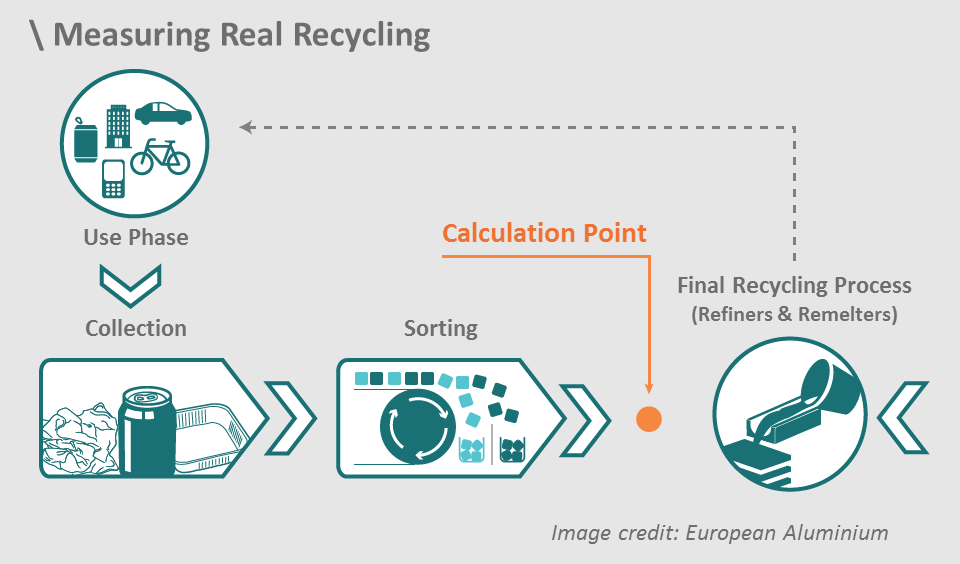Within their new Circular Economy Package, the European Commission has set a target for EU Member States to increase their recycling rates for municipal waste, up to 65% by 2030.
Rather than debating that target's ambition, we want to highlight an important change that's been made in its calculation. For the first time, Member States will be required to report their realrecycling rates, in a harmonised way.
Over the next months, we'll be encouraging MEPs and Member States to safeguard the Commission's new recycling definitions, as well as the harmonised point of measurement for recycling rates. This will be crucial to transfer focus away from waste management, and towards material recovery.
What happens now?
Currently, Member States can calculate their recycling rates at different stages of the recycling value chain, creating inconsistencies. Some only base their recycling rates on collected waste, even though that includes waste destined for landfill or incineration.
To take a practical example, aluminium beverage cans or trays are collected from households together with other packaging, and sometimes also paper. Before recycling, they still need to be sorted into an individual stream, and then pre-treated using dedicated mechanical processes.
If Member States report on their recycling rates before those stages, then there is no incentive to make sure the required steps for material recovery are properly carried out.
What will change?
The Commission’s waste legislation proposals address this situation. All Member States would have to measure recycling rates directly after the mechanical sorting phase, under the condition that waste is effectively reprocessed into products, materials or substances as part of a final recycling process.
This has two major benefits. Firstly, all Member States will measure their recycling rates in the same way, allowing for a real benchmark of progress. Secondly, focus is on material recovery, which is the essence of recycling within a Circular Economy.
That’s why it’s crucial for the Parliament and Council to support the definition of “final recycling process” and the proposed point of measurement when reviewing the Package.
Photo credit: Elliot Margolies (2008)
